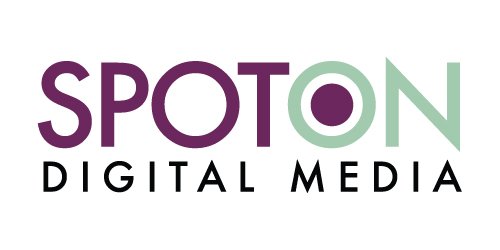The one thing I don't like about Ryan Holiday's book: Growth Hacker Marketing
Question - Is your first impression of the book based on the title alone, positive or negative?
In 2010, I was working for a large media company and we launched a deals service on our website, pretty much like Groupon. The only differentiator was the kind of deals that our advertising sales reps created with their many well-built, local relationships.
At the time, I was the digital marketing director for that site, its companion newspaper and an affiliated local television station. Tasked with marketing the launch of our new service, I put together a plan using our house promotional mix – a :15 television spot to run in house rotation, newspaper house ads of many standard filler sizes, and online house banners. Then I got to work on the fun stuff with a small budget for AdWords, email marketing and review of our site catalyst analytics. I also began working with our online development team to learn about the content management system hosting the deal content to see if there was a way to optimize it. We found some limitations, but there still were plenty of prime opportunities to manipulate the content to optimize search and use the leverage our news website already had with search rank.
We even got the television station to create segments about local deals. Though they didn't use any of the paid deals – they sought their own public offers upholding editorial integrity – it was still additional content that drove traffic to our deals pages. I was pumped about the technical marketing extensions of the launch, feeling they were advanced.
Then I got word our company president wanted a bigger splash for the launch. He didn't think our technical advances would be enough local exposure. I racked my brain. We already had a full media mix with our house multi-media platforms. I realized the only tactic that would satisfy the executive would be something traditional that was visible, tangible. My idea: guerrilla marketing. I pulled together a street team and we wrapped thousands of $1 bills in $5 bundles in a promotional wrap. On launch day, we hit the city, handing out cash.
I thought about that effort in relation to many of the points Ryan Holiday makes in his book, Growth Hacker Marketing. I wondered how many users I could have acquired with that cash through more of my intended technical efforts. There were so many things wrong about my example, and just a few that were following the “Growth Hacker” mindset Holiday represents.
1. We probably shouldn't have even launched a deals competitor at all. The site ultimately ended up partnering with Groupon and now doesn’t host such a service at all.
2. Marketing started discovering the flexibility of the content platform after it was integrated without being involved early on to ask the questions with search optimization, customer referral and growth in mind before integration.
3. We reviewed analytics a lot, even had a full time person pulling reports and but was it enough, deep enough around the right stuff?
Many other wrongs came to mind as I thought of other examples of campaigns I was part of during my career in marketing. I remember those instances where I felt like I was thinking more technical, with the desire to know exactly which digital tactic was working and optimizing to the success. Often, others commented that it wasn't BIG enough.
In an investor pitch once, I was asked what was the most outrageous marketing thing I've done? My answer was that we don't do outrageous marketing; we do smart, technical marketing.
Yet, we actually once had a colleague dressed up in a bear costume handing out info about the MamaBear App to parents in front of a Justin Bieber concert. It was cute but it didn't work. I saw clearly in our analytics what drove registrations to our app and it wasn't event marketing.
So, what is it that I don't like about the book? I loved reading the book. I'll read it again and his other book, too.
My problem is the word “hacker.”
Hack defined: use a computer to gain unauthorized access to data in a system.
The mindset Holiday talks about is the mindset of many digital marketers and even better with the skill and thought process of programmers. But hacker and hacking have negative connotations. It speaks of “black hat” practices, of rigging the system, of taking shortcuts. Things I don’t want to associate myself.
I want to do everything Ryan talks about in his book. I just don't want to be a “hacker.” I'm a team playing, problem solving, technical marketing professional. I use the combined power of data and storytelling to achieve my clients’ goals.
That’s not hacking. That’s innovating – through hard work, common sense and a willingness to embrace useful, measurable new methods of sustainable growth.
